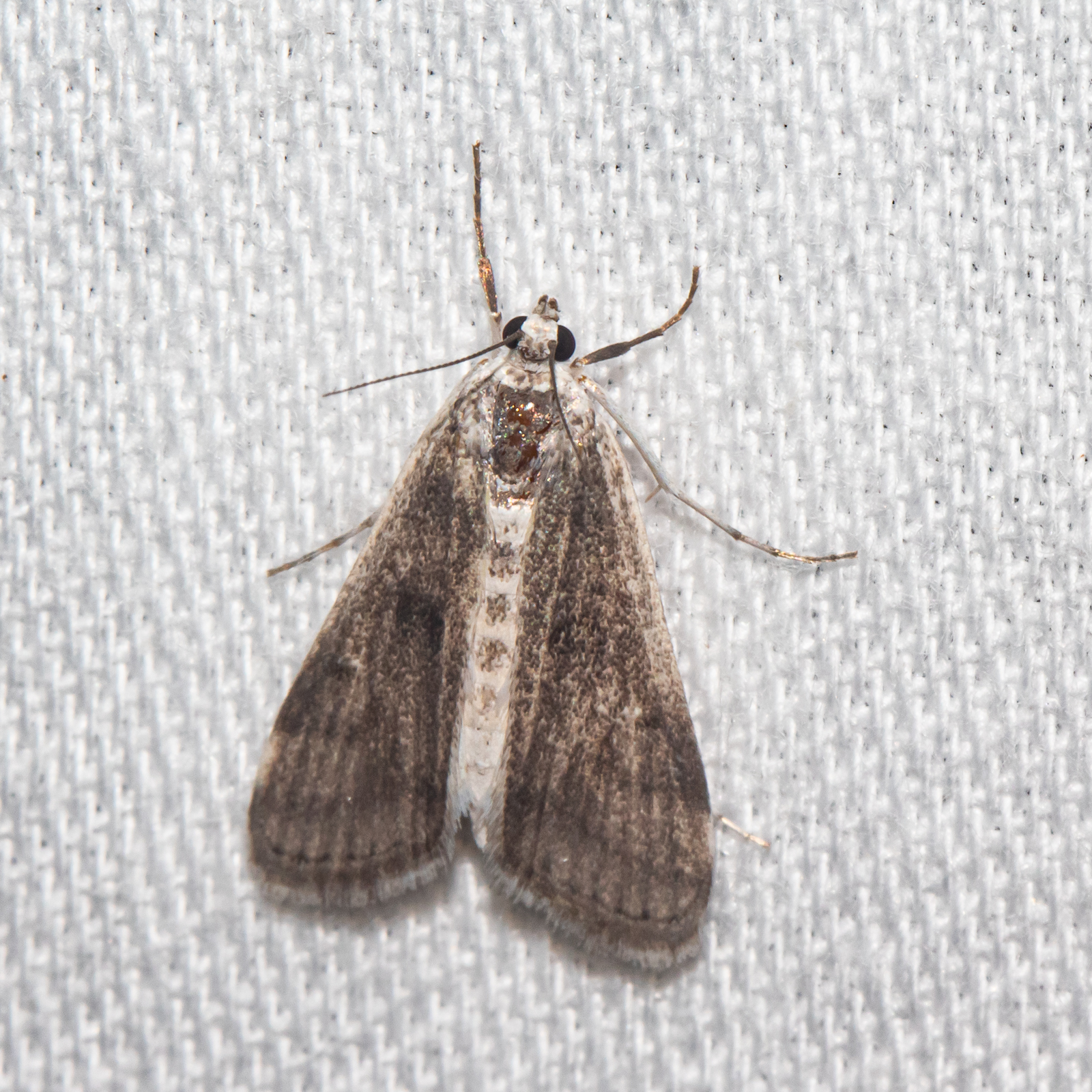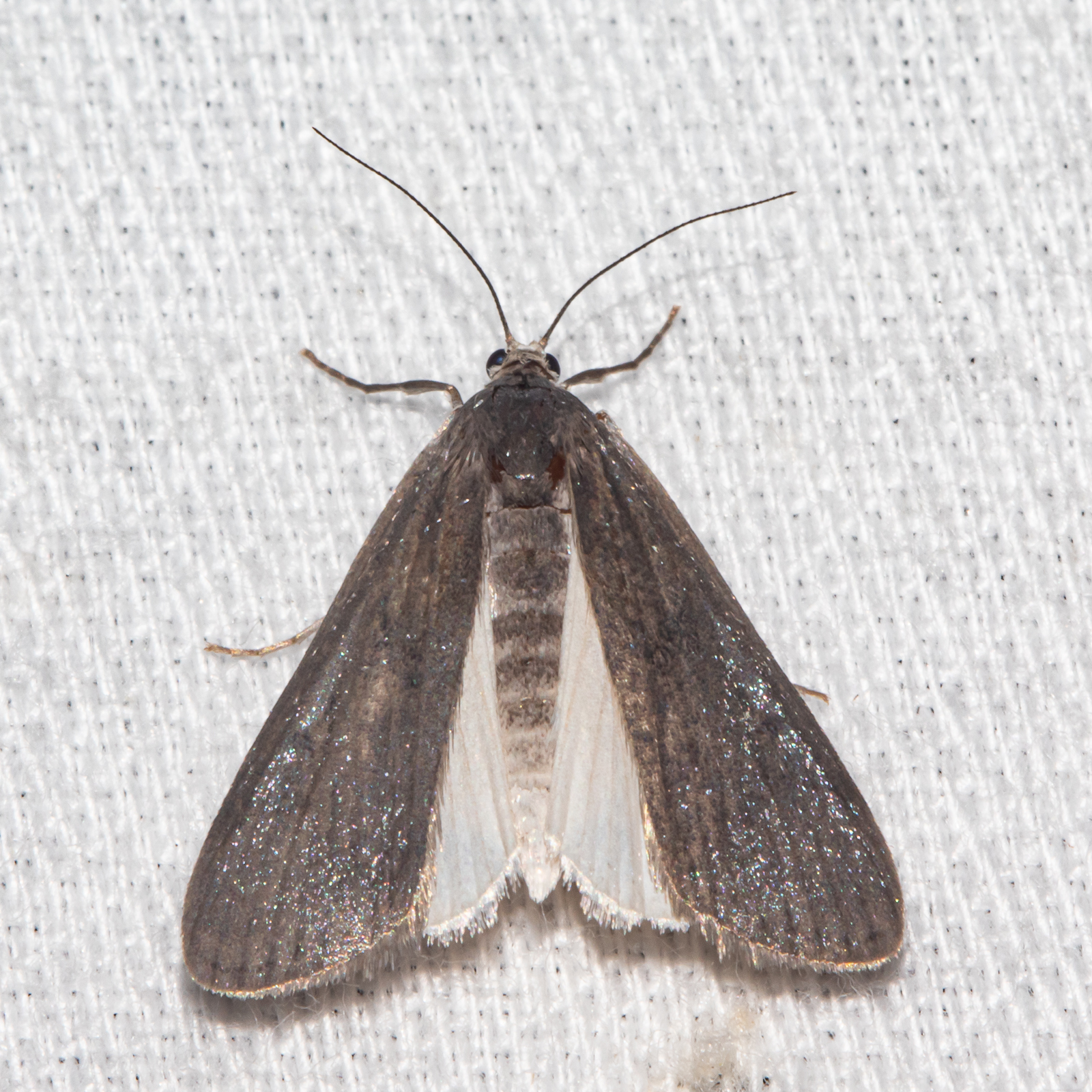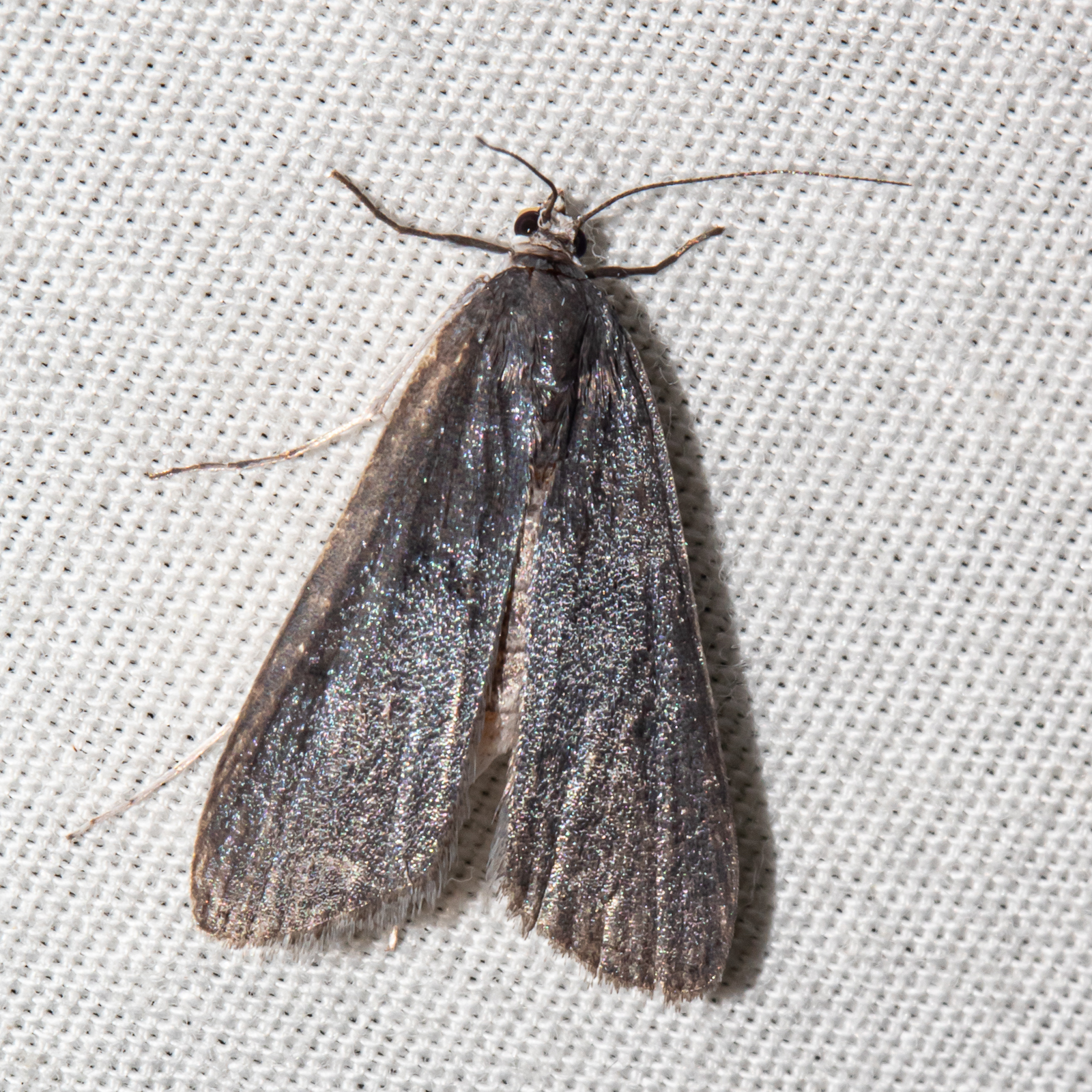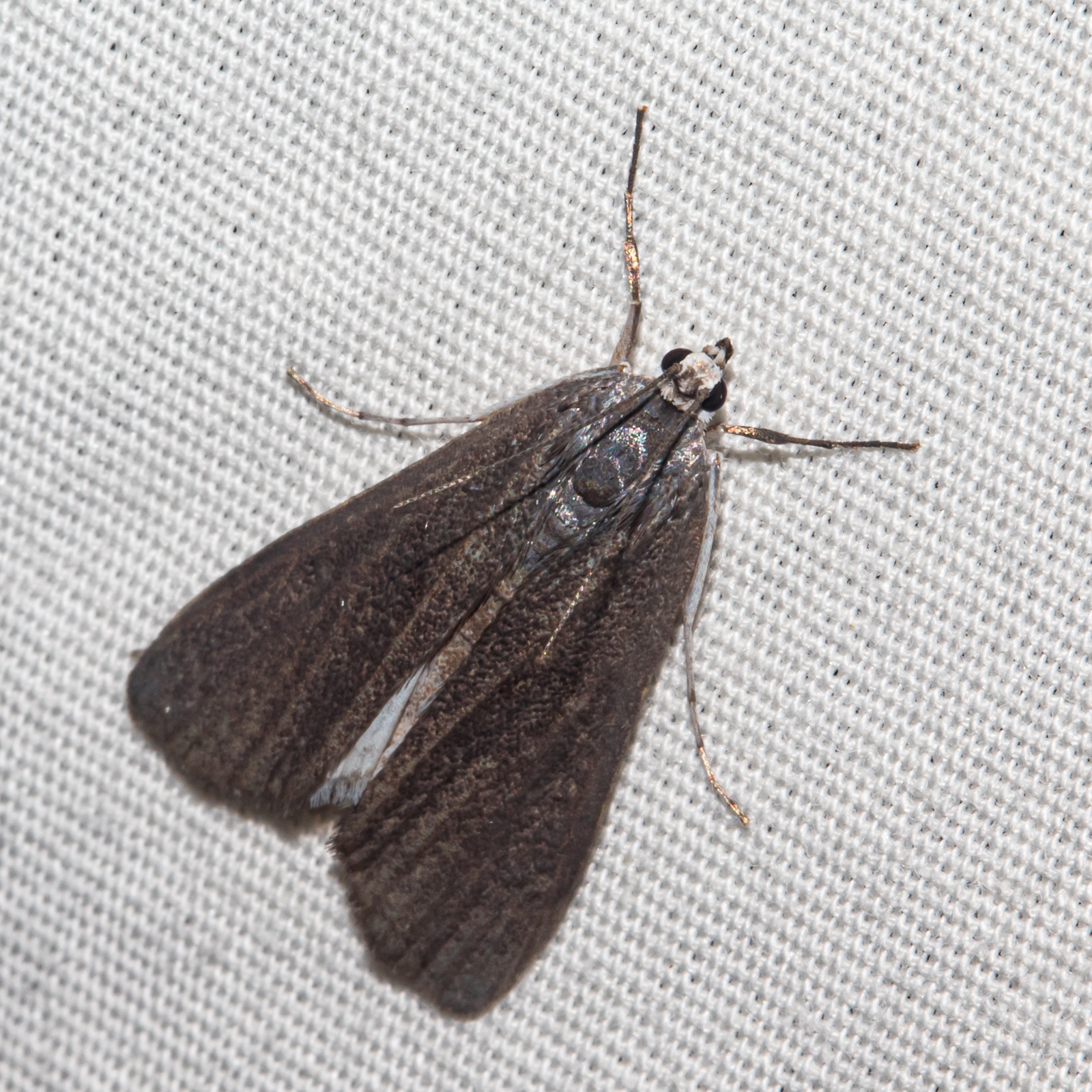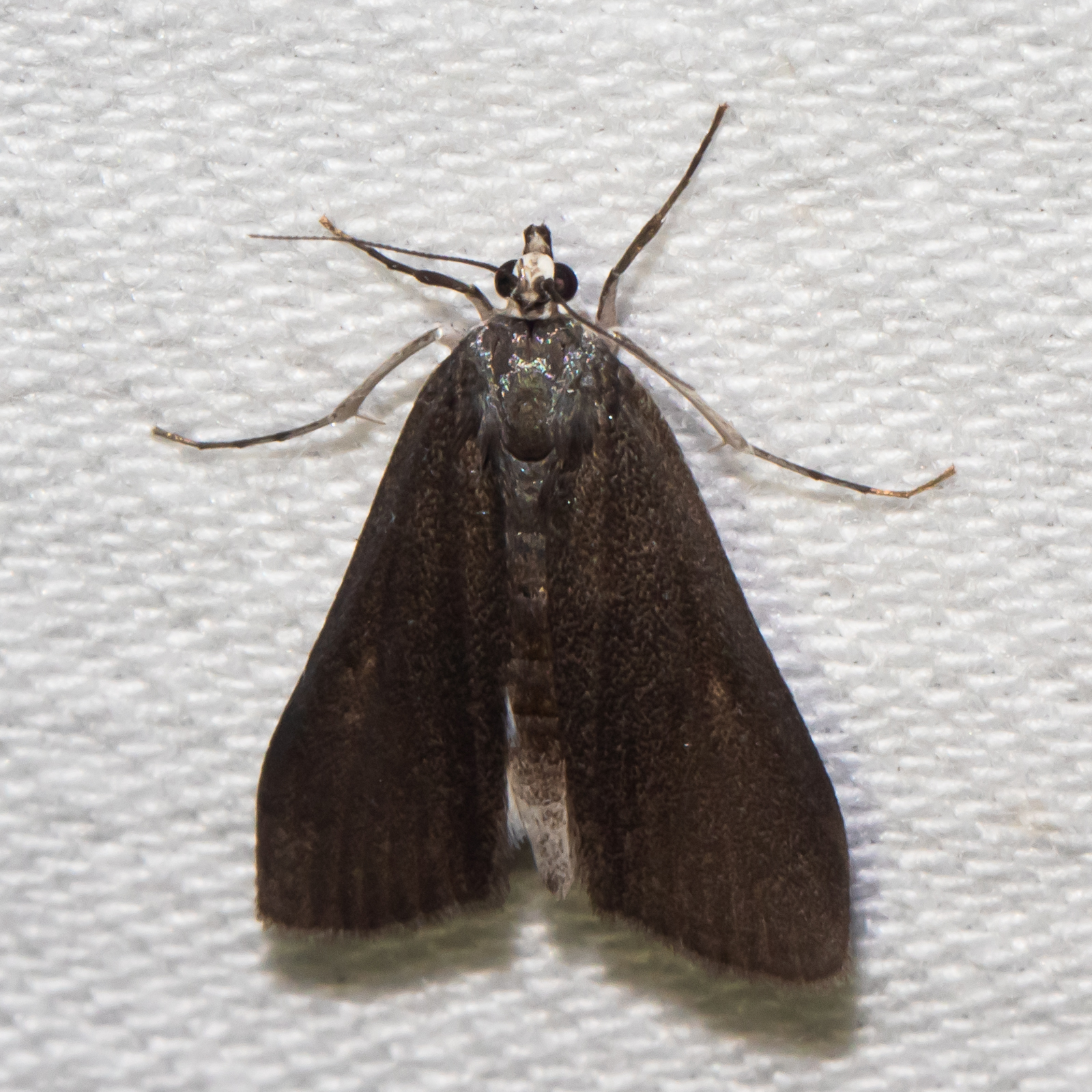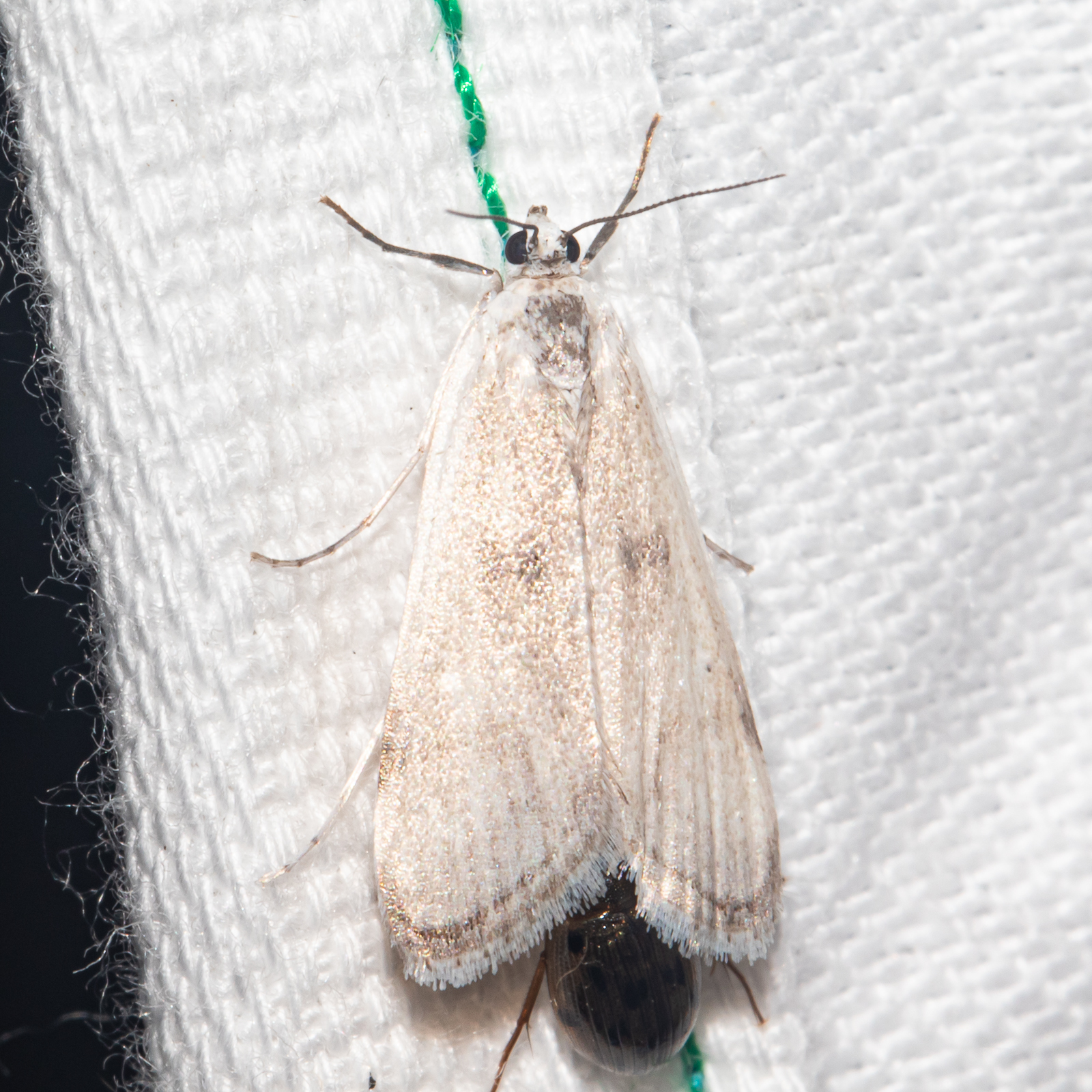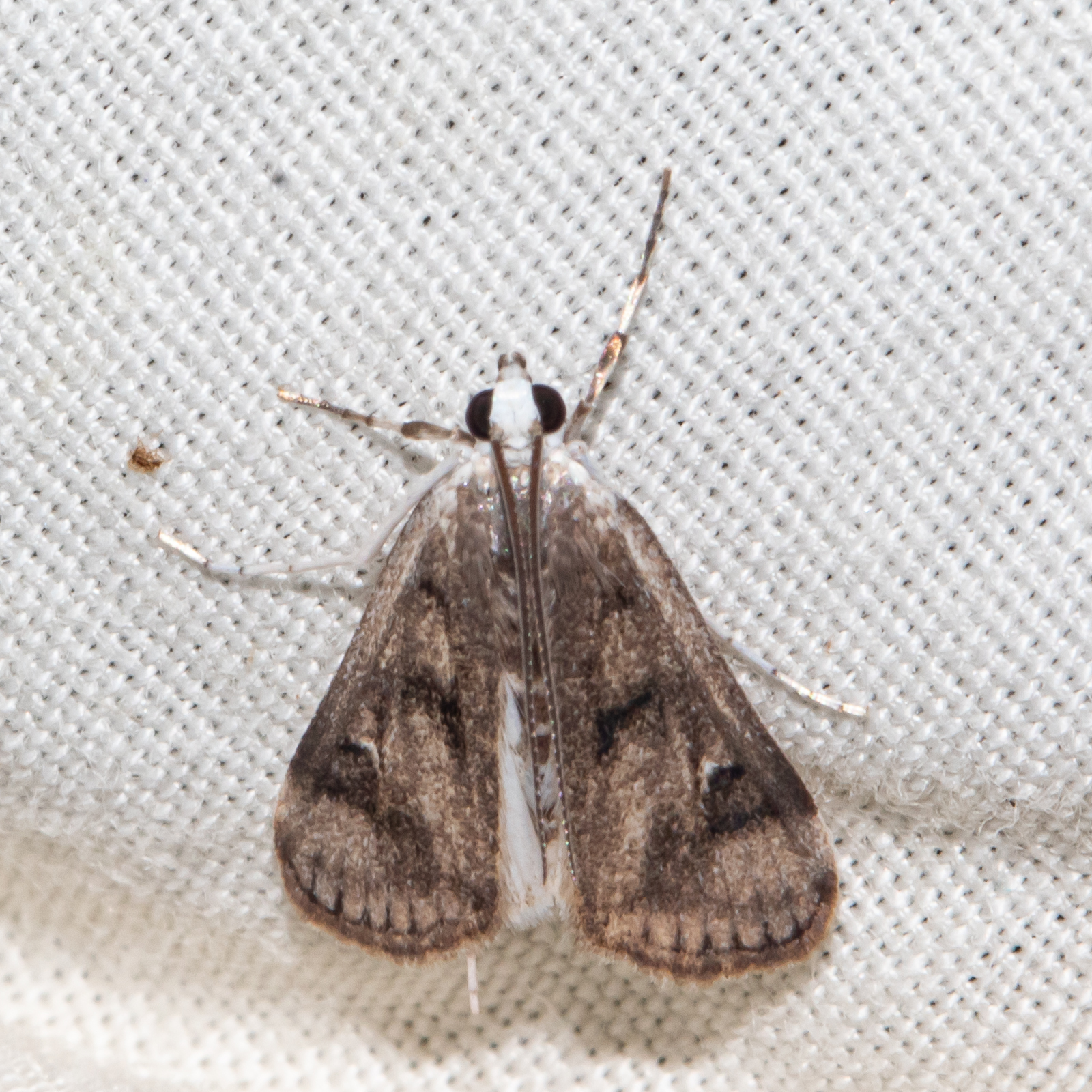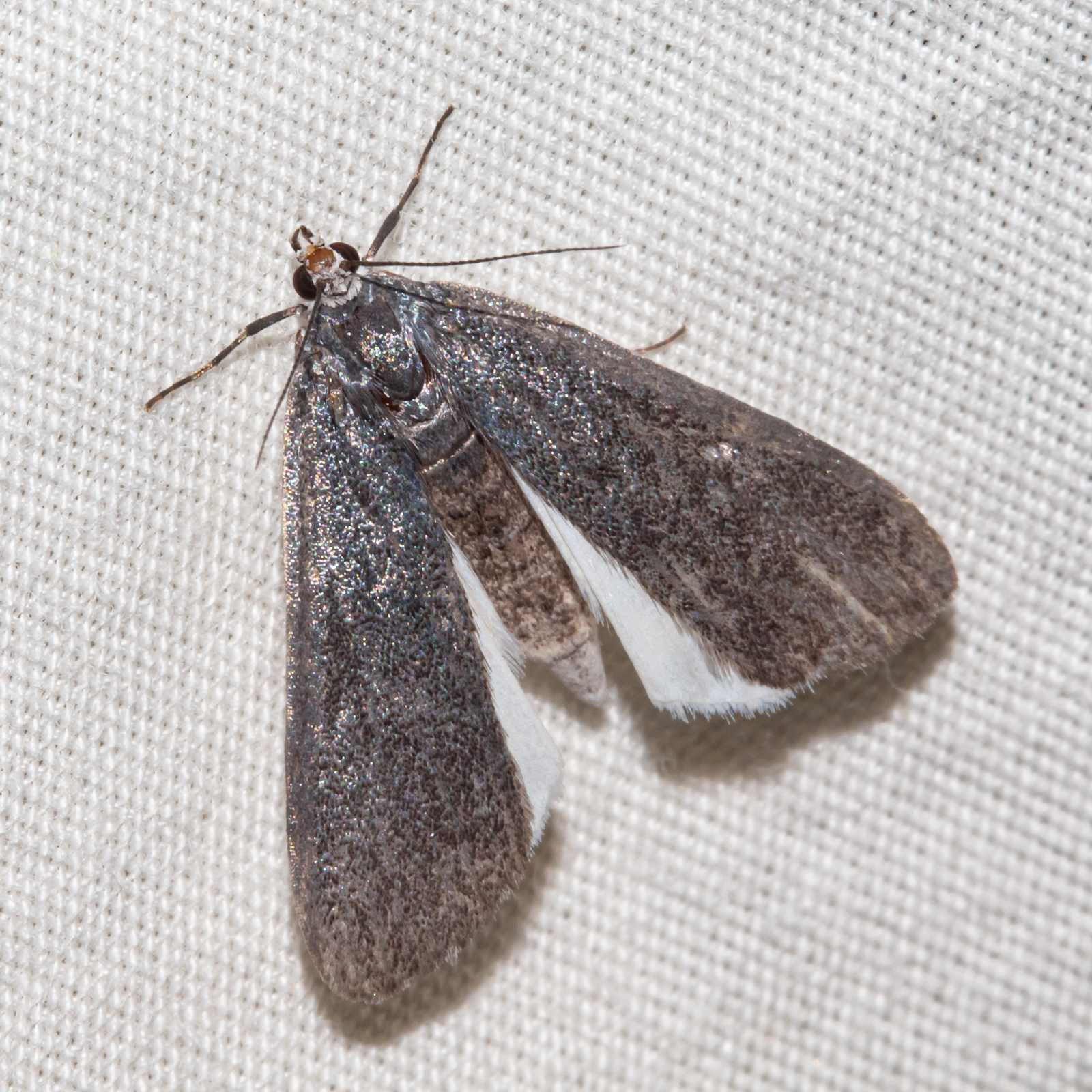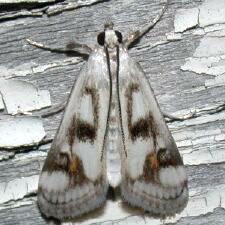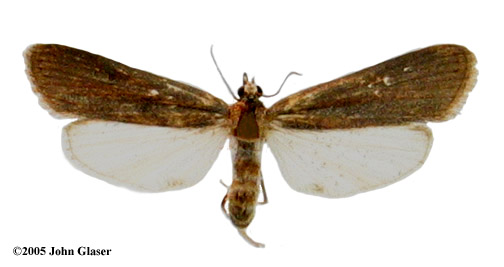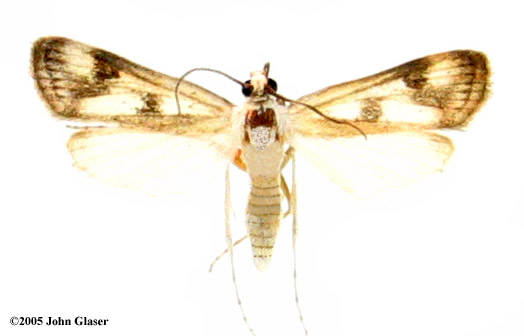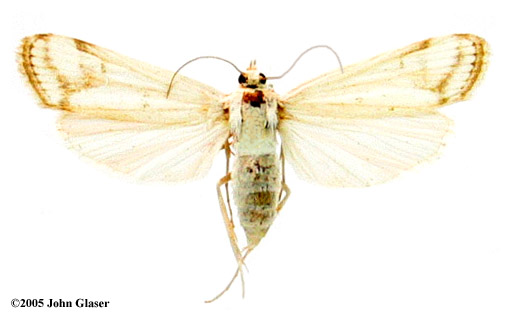Map Snapshot




14 Records
Seasonality Snapshot
Source: Wikipedia
| Parapoynx maculalis | |
|---|---|

| |
| Scientific classification | |
| Domain: | Eukaryota |
| Kingdom: | Animalia |
| Phylum: | Arthropoda |
| Class: | Insecta |
| Order: | Lepidoptera |
| Family: | Crambidae |
| Genus: | Parapoynx |
| Species: | P. maculalis
|
| Binomial name | |
| Parapoynx maculalis (Clemens, 1860)
| |
| Synonyms | |
| |
Parapoynx maculalis, the polymorphic pondweed moth, is a moth in the family Crambidae. It was described by James Brackenridge Clemens in 1860.[1] It is found in eastern North America, where it has been recorded from Alabama, Alberta, Florida, Georgia, Illinois, Indiana, Louisiana, Maine, Maryland, Massachusetts, Michigan, Minnesota, Mississippi, New Brunswick, New Hampshire, New Jersey, Newfoundland, North Carolina, North Dakota, Nova Scotia, Ontario, Pennsylvania, Quebec, South Carolina, Tennessee, Texas and Wisconsin.[2] The habitat consists of ponds and streams.
The wingspan is 18–22 mm.[3] The forewings are white, dusted with fuscous along the base and with a fuscous spot at the base of the fold. The hindwings are pure white.[4]
The larvae feed on various aquatic plants.[5] Young larvae are light yellowish brown with a dark yellowish-brown head.[6]
References
[edit]- ^ "GlobIZ search". Global Information System on Pyraloidea. Retrieved 2014-07-15.
- ^ Moth Photographers Group. Mississippi State University.
- ^ Bird, C. D. (2009). "Species Details: Parapoynx maculalis". University of Alberta Museums. E.H. Strickland Entomological Museum. Retrieved December 28, 2020.
- ^ Clemens, B. 1860. "Contributions to the study of Lepidopterology - No. 5". Proceedings of the Academy of Natural Sciences of Philadelphia 12: 218-219.
 This article incorporates text from this source, which is in the public domain.
This article incorporates text from this source, which is in the public domain.
- ^ Bug Guide
- ^ Welch, P.S. 1916. "Contribution to the biology of certain aquatic Lepidoptera". Annals of the Entomological Society of America 9(2): 160-181, pl.7-9, f.1-19]
 This article incorporates text from this source, which is in the public domain.
This article incorporates text from this source, which is in the public domain.
